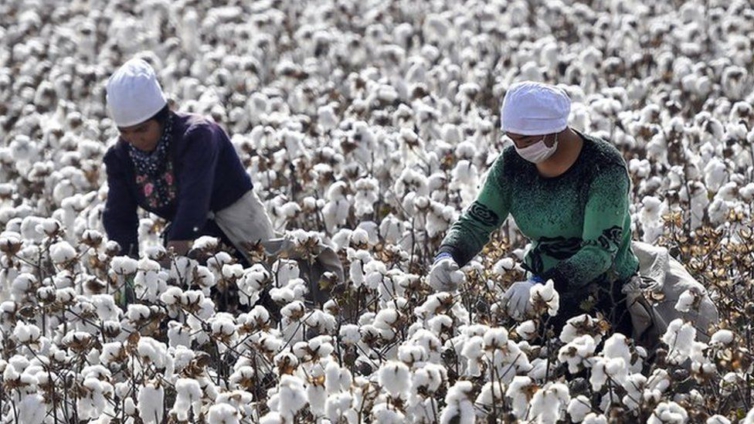UK firms doing business in China will face fines if they can't show their products aren't linked to forced labour in the country's Xinjiang region.
Foreign Secretary Dominic Raab told MPs exports will be monitored to ensure goods are not being used in camps where Uighur are among minorities being held.
UK firms above a certain size must show they are trying to avoid using slavery in their supply chains.
UK tightens rules on using Uighur-picked cotton https://t.co/hTaffieMXk
— Top Most Popular News (@TPM_NEWS) January 12, 2021
But there is currently no penalty if they fail to do so.
There will also be new guidance for firms and public sector organisations about the risks of trading with Xinjiang where, Mr Raab said, there is growing evidence of more than a million Uighurs and other minorities being held in forced labour camps.
Details of the fines have not yet been released.
Campaigners said the law needs to go further.
"The government has missed an opportunity to guide a meaningful shift away from exploitation and forced labour wherever it occurs," Joanna Ewart-James, executive director of the anti-slavery organisation Freedom United told Reuters.
"Reporting requirements are not enough to hold companies accountable - we need business and government to be held liable for rights abuses in their supply chains and victims should be able to seek redress," she added.
Last week retailer Marks & Spencer signed onto a call to action on human rights abuses in China's Xinjiang region.
The call to action comes from a coalition of civil society organisations and labour unions who want to end abuses against Uighur people.
The coalition said it is almost certain that any brand currently sourcing apparel, textiles, yarn or cotton from the region is profiting from human rights violations, including forced labour.
Marks & Spencer sources its cotton through businesses that are accredited with the Better Cotton Initiative (BCI), a not-for-profit organisation that focuses on sustainable production.
In March last year, BCI suspended its activities in Xinjiang, and as a result, there is no new licensed BCI cotton coming from the region or in M&S products.
Nevertheless, M&S said it was important to sign on to the call to action to encourage other companies to examine their supply chain.
In December, the BBC revealed new evidence that China is forcing hundreds of thousands of Uighurs and other minorities into hard, manual labour in the cotton fields of Xinjiang.
The report increased pressure on clothing retailers to remove Xinjiang cotton from their supply chains.
M&S uses around 40,000 tonnes of lint cotton each year from various sources.
Latest Stories
-
Finance Minister to unveil Mahama’s 2025 Budget today
8 minutes -
Philippines’ ex-President Rodrigo Duterte arrested at ICC’s request over ‘drugs war’, government says
30 minutes -
Cowbell-GES Independence Day Debate: Gomoa Senior High Technical outshines Serwaa Kesse Girls’ SHS to win contest
45 minutes -
Geisha champions women’s empowerment and progress at 7th National Women’s Summit & Expo
56 minutes -
Musk’s Tesla facilities in US face ‘Takedown’ protests
1 hour -
Charity M. E. Adupong’s vision of promoting food security and empowering women in agricbusiness
1 hour -
Stocks fall in US and Asia over Trump tariffs concerns
2 hours -
Liverpool need best display of season to beat PSG – Slot
2 hours -
King and Kate return to annual Commonwealth service
2 hours -
US unveils new app for ‘self-deportations’
2 hours -
More than 80% of USAID programmes ‘officially ending’
2 hours -
Ayra Starr, Mofe-Damijo to join Idris Elba as cast of ‘Children of Blood and Bone’
2 hours -
Businessman, farmer granted bail for allegedly defrauding estate developer
3 hours -
Nigeria’s anti-graft agency recovers nearly $500m in one year
3 hours -
NDC Sowutuom branch organiser granted GH¢100,000 bail pending appeal
3 hours

